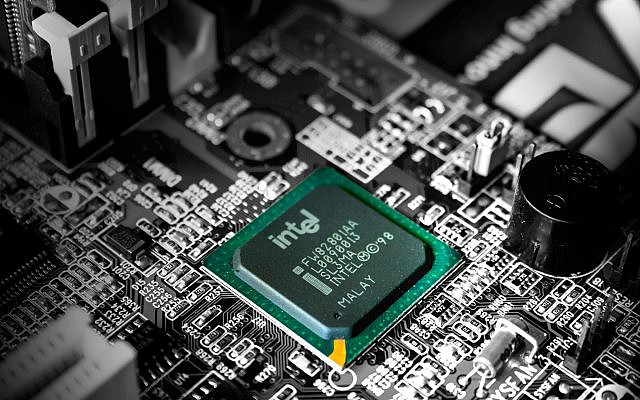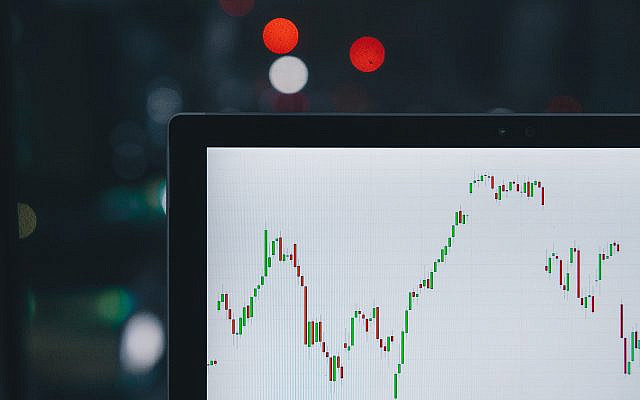Israel is economically devastated!?
7 reasons why Israel’s economy is still strong

Forecasts suggesting the October 7 attacks and the conflict in Gaza would severely disrupt both regional and global economies have not been realized to the extent anticipated. Israel’s economy has demonstrated a strong capacity for resilience and appears better equipped to manage the strains of an extended conflict compared to its state during the second Intifada 20 years ago.
No economy remains untouched by the fiscal burdens associated with waging a lengthy conflict. Mobilizing 350,000 reservists, many of whom are employed in critical industries such as technology, represents a significant setback that is affecting economic growth. However, a shared sense of national purpose has played a role in mitigating the adverse effects of the conflict.
However, with such disproportionate negative media commentary on Israel’s war against terror group Hamas in Gaza, Israel’s positive economic and business activity doesn’t get the attention it deserves. As an Israel supporter, you're likely to be familiar with the biases, so this article highlights some of Israel’s rays of hope.
In February 2024, Israeli startups raised $293 million in 16 deals, a 60% decline from the $731 million raised in the same period a year before. In the last 3 months of 2024, Israel’s GDP shrank by 20% in annualised terms and Israel’s credit rating was downgraded by Moodys. All of this is in addition to the macro challenges that Israeli startups had to deal with in 2023 even before October 7th.
1. Strong Gas Reserves

Israel’s gas reserves are small in global terms but have made the country self-sufficient in energy. Important considering that diplomatic relations with Israel’s Arab neighbours are fragile, to say the least.
Israel first became a net gas exporter in 2020. By 2022, exports reached 10 billion cubic meters (bcm), nearly 50 percent of the country’s output. Most of those exports (64 percent) have been contracted to Egypt for 15 years, and the rest to Jordan. Despite the war with terror group Hamas, domestic production is still expected to double by 2027.
2. Low Debt-to-GDP ratio of 60%
Israel’s debt-to-GDP ratio of 60% (prior to the war) is something most European economies can aspire to. Israel raised NIS 160 billion ($42.3 billion) throughout 2023, the Finance Ministry said. The ability to raise large sums even during wartime illustrates high investor confidence in Israel. A low debt-to-GDP ratio means that an economy generates a level of goods and services that allows it to repay debts without needing to take on additional debt.
3. Continued Multinational Investment, Intel, and more
Dutch supermarket chain SPAR will open its first branch in Israel next week in a move that could help spur much-desired competition in Israel’s overly concentrated food retail market and help bring down prices of some products for consumers. SPAR license holder Amit Zeev to launch the first store in Kfar Saba, with 10 more planned within months, out of a total of 35 branches, as Israelis grapple with inflation.

Mega chip manufacturer Intel has announced plans to establish a manufacturing facility in Israel, committing $25 billion to the venture. This was disclosed in a collaborative statement by the Finance Ministry, the Economy Ministry, and the Israel Tax Authority.
Under the terms of the deal with various governmental entities, Intel will recruit thousands of employees for its new operations in the Kiryat Gat region. Intel anticipates commencing operations at the new plant by 2028
Team8, an Israeli venture capital firm known for creating and launching technology companies, has secured $500 million for its latest funding rounds, aimed at investing in approximately 30 startups across cybersecurity, data infrastructure, fintech, digital health, and artificial intelligence (AI).
With this new injection of funds, Team8’s total managed assets have surged past the $1 billion mark, the company announced.
4. Leading economic Agency Recognition
Leading economic agency, Fitch Ratings, Israel from “credit rating negative” and affirmed the country’s A+ credit rating — but with a negative outlook, citing uncertainty about the duration and magnitude of the war with the Hamas terror group and its toll on the government’s debt burden.
“Geopolitical risks associated with the war in Gaza remain elevated and escalation risks remain present, but Fitch believes the risks to the credit profile have broadened and their impact may take longer to assess,” Fitch wrote, elaborating on its reasoning for removing the credit watch negative outlook.
5. Tel Aviv Stock Exchange Bounce Back

Despite the fiscal deficit booming, Stock and bond prices on the Tel Aviv Stock Exchange have been enjoying a recovery, when the initial shock of the October 7 massacre in southern Israel and the first weeks of the consequent Gaza war receded. The shekel, which saw a remarkable comeback in recent weeks, hit a nine-month-high against the dollar in early March and is trading at stronger levels than on the eve of the Hamas-led, Iran-funded attack.
6. Positive Outlooks from investment specialists
Juan Delgado-Moreira, co-CEO of Hamilton Lane, a $900 billion asset management company, said in a recent interview:
“now is the best time to invest in israel. the only real essential market for venture capital, apart from the usa, is in israel, and those who do not invest in it should be ashamed
Or the words of Justin Borus, the founder and chief investment officer of Ibex Investors that just raised $106M to invest in early-stage Israeli startups
“the U.S. credit rating forecast dropped in November, and since then the S&P 500 index has jumped by 15%. investors do not give the credit rating the same attention as before. what is important for them now in the context of Israel is a permanent ceasefire. this could accelerate a new rally in the domestic market, so we are also becoming more aggressive here. we recruited two more people to the office in Tel Aviv, and in terms of investments, the current situation in Israel is the best in the 12 years i have been working here. today it’s hard to see that, and we also felt that way after 9/11, but since then the markets in the U.S have quadrupled.
Jensen Huang, the founder and CEO of Nvidia
“Israel is home to world-leading ai researchers and developers creating applications for the next wave of ai. with Nvidia’s israel-1 ai supercomputer, a broad range of innovative companies in Israel will create ai that can transform the productivity and business models of enterprises around the world.”
7. Tech Start-up Raises
Israeli tech startups raised a total of $1.6 billion from investors in the first three months of the year, in a first sign that the fundraising drought caused by the outbreak of the Israel-Hamas war is beginning to show some recovery, according to a report compiled by research center IVC and LeumiTech, a Bank Leumi arm that specializes in tech companies.
Capital raised by Israeli tech companies rose 10 percent in the first quarter of 2024 from the previous quarter when $1.45 billion was secured as the war led to a sharp plunge in investments
“Despite domestic instability brought on by the ongoing fighting and complex macroeconomic conditions, we see that the trend of stabilization in the industry continues into 2024,” stated LeumiTech CEO Maya Eisen-Zafrir. “Israeli high-tech is standing firm and showing encouraging signs of recovery.”
To quote Eze Vidre, Co-Founder and Managing Partner at Remigine Ventures, in his article Seizing the Moment, Why Experts Believe Now is the Golden Opportunity to Invest in Israel “every crisis is an opportunity. What goes down often comes back up, and every dip could be a hidden opportunity in disguise. Rather than adopt a victim mentality, Israeli entrepreneurs do what they do best – build, invent, overcome obstacles and continue to develop a healthy disregard for the impossible”
“The Israeli economy is rooted in strong and healthy economic fundamentals, and is a world leader in the fields of innovation and technology,” said Bank of Israel Governor Amir Yaron
This, Leumi’s Bufman said, is because growth drivers remain – including rapid population growth of 2% a year, Israel’s natural gas production, high levels of research and development and a highly skilled workforce able to work from home and bolster the services sector.
“We went through a very difficult period in the fourth quarter with all the things that happened, but it does seem like things are coming back,” Bufman said.
Previous careful management of Israel’s economy ensures stability remains secure. A swift rebound from the economic losses incurred during the war is highly feasible once hostilities cease.
-
The Israel Stock List Ebook updated for 2024 is now available for only $15. This simple eBook provides a comprehensive list of all the Israeli-founded companies that can be purchased on the international markets.
The Israel Stock Tracker contains all of the Israeli-founded companies listed on the New York Stock Exchange, NASDAQ, and London Stock Exchange. The spreadsheet allows you to track the share price of those Israeli-founded companies.
Purchase stocks in Israeli Founded Companies at Israeli-founded brokerage, Etoro, and join the millions of stock investors worldwide. Investors can buy stocks for as little as $100 deposit. Founded by serial Israeli brothers Yoni Assia and Ronen Assia
TipRanks is a comprehensive research platform, founded by Israeli entrepreneurs, Uri Gruenbaum and Gilad Gat in 2012, that helps investors make better, data-driven investment decisions. So can sign up to a free trial here This platform does much of the analysis work for investors.
Also, connect with other like-minded Israel enthusiasts in the Open Middle East LinkedIn Community
Other investment options include Israeli Real Estate, and the Israeli Real Estate Lawyers
Want to be kept up to date on future articles on how to support Israeli Businesses? Subscribe to the Open Invest Newsletter for free today
Sources and acknowledgments:
SPAR to Open Debut Store in Israel – Sharon Wrobel – Times Of Israel
Fitch removes Israel from ‘credit watch negative,’ affirms A+ score despite war risk – Sharon Wrobel – Times of Israel
Market optimism: Despite war uncertainty, Israeli stocks and shekel attract investors Sharon Wrobel – Times of Israel
Thank God For Israel’s Economic Resilience – The Jewish Chronicle – Alex Brummer
Backed by Microsoft and Cisco, Israel’s Team8 raises $500m to help build startups – Sharon Wrobel
Why Experts Believe Now is the Golden Opportunity to Invest in Israel by Eze Vidra – VC Cafe
Israel’s gas exports in times of war – Carole Nakhle – GIS
Writer - Jon Simmons - Bi-lateral trade investment advocate for Israel and its supporters, and content strategist for ambitious businesses looking to grow online

Jon Simmons is a bi-lateral trade investment advocate for Israel and its supporters, and content strategist for ambitious businesses looking to grow online.














